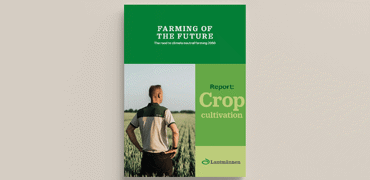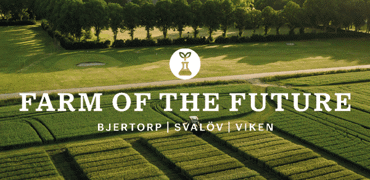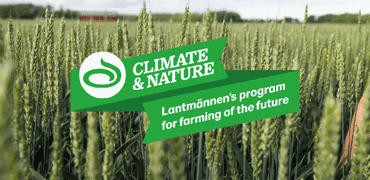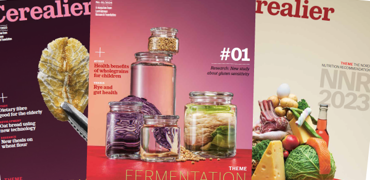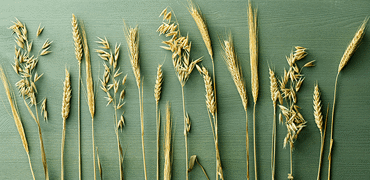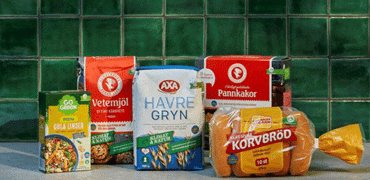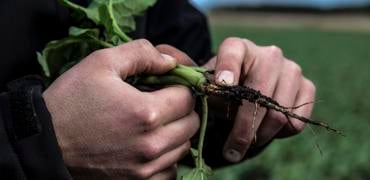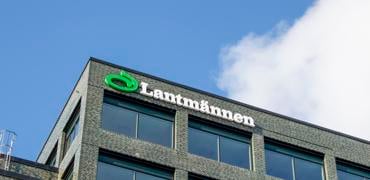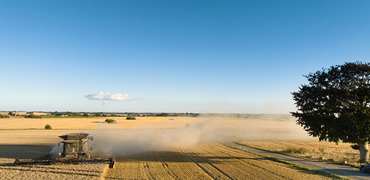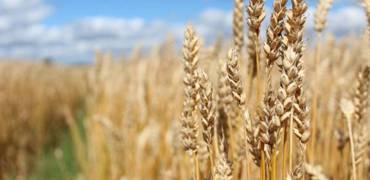“The Chinese visit is a result of the Group Board’s trip to China, where we made several contacts and received a lot of attention for our work with food safety. The process for approving Sweden as a country for oat export to China has, so far, been unusually quick – although it isn’t finished yet,” says Patrik Myrelid, Lantmännen’s Head of Strategy, who is coordinating Lantmännen’s work with the approval process.
The purpose of the visit was to prepare for an eventual approval of oat exports from Sweden to China. During their visit at Lantmännen, which lasted four full days, the Chinese visitors got the chance to see virtually the entire oats value chain. From plant breeding and seed treatment to grain cleaning, transportation and storage, food production – and the port on Djurön in Norrköping, where ships for grain export are loaded. The visit was concluded with a farm visit with one of Lantmännen’s members. The delegation was particularly impressed by the high standards and efficiency of Swedish farming.
“Lantmännen has one of the most successful programs for oat processing in the world, with more than 100 years of experience. Along with major investments in research, this has produced oat varieties that are greatly appreciated by both growers and customers. Swedish oats also have many advantages in comparison with other countries – the Nordic climate, for example, is very well suited for growing oat, which produces a large and good oat kernel with a high yield in the mill – and a low disease pressure that contributes to the high quality,” says Göran Karlsson, Lantmännen’s Product Marketing Manager for oat.
Lantmännen: certified supplier of oat products
The Chinese delegation visit was focused on exports of pure and processed oats to China. Lantmännen has already been certified as a provider of ‘processed oat products’ – which, among other things, includes AXA’s milled oats. So far, no large quantities have been delivered to the Chinese market, but exports have begun on a small scale, and the ambition for 2016 is to increase volumes further.
“Oat is already an established and large market in China, with far more products on shelves than we find here in the Nordic countries. There are oat products from the US, UK, Germany, and of course lots from China – sold for anywhere from 10 to 150 SEK/kg. In order to be successful in this huge market, we need to have and follow a clear strategy, where we communicate the strengths of our Swedish oat and our company. Swedish oat is of high quality, safe, and sustainably produced – when it comes from Lantmännen. These are all important factors for Chinese consumers, and although ordinary people in China so far know very little about Sweden and Swedish food, we will gradually change this,” says Krister Zackari, Head of Lantmännen Cerealia.
About grain and oat
Lantmännen’s plant breeding business consists of 65 employees. We have four grain cleaning facilities: in Skara, Skänninge, Klintehamn, and Eslöv. In addition, we have three trial farms, where breeding programs are tested and evaluated – in Lännäs, Svalöv, and Emmeloord in the Netherlands.
It takes between 9 and 16 years to create a new seed variety. Cross-pollinating ‘parent plants’ with good properties takes 7-10 years, and the testing and evaluation of new varieties takes about 2-3 years.
Each year, Lantmännen’s grain unit purchased approximately 2-2.5 million tonnes of grain from Swedish farmers. In addition, we buy about half a million ton from other suppliers in Europe each year.
Lantmännen exports 150,000 to 200,000 tonnes of grain each year. Consumption in Sweden is about 120 000 tonnes. Major export markets are the US, Germany, the Netherlands – and our neighboring countries Norway and Denmark. Finland, like Sweden, is a major oat producer and exports even more oat.
Oats are a good source of protein and beta-glucans, a unique type of dietary fiber. Additionally, oats contain a lot of Vitamin B, antioxidants, and essential minerals like iron, magnesium, and zinc.
Lantmännen’s port facility at Djurön in Norrköping has a storage capacity of 240,000 tonnes. Each year, 12,000 grain samples are taken at the facility, and about 65,000 lab analyses are done.






